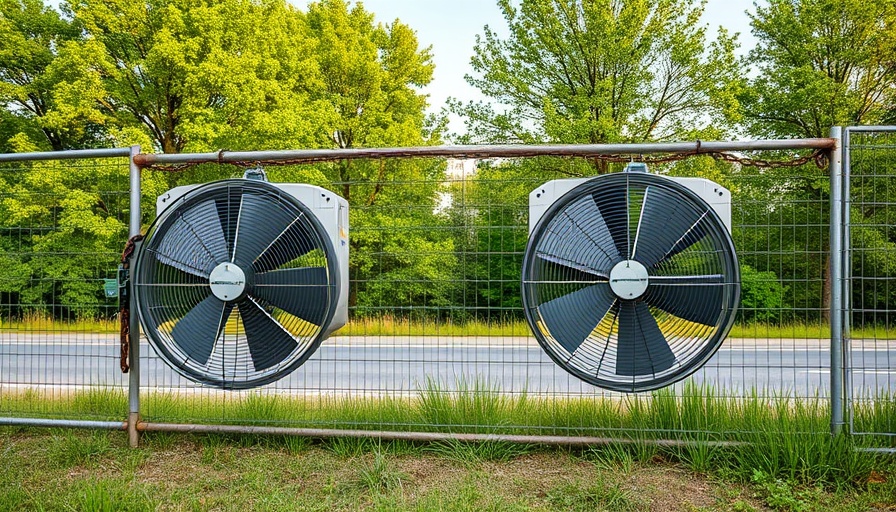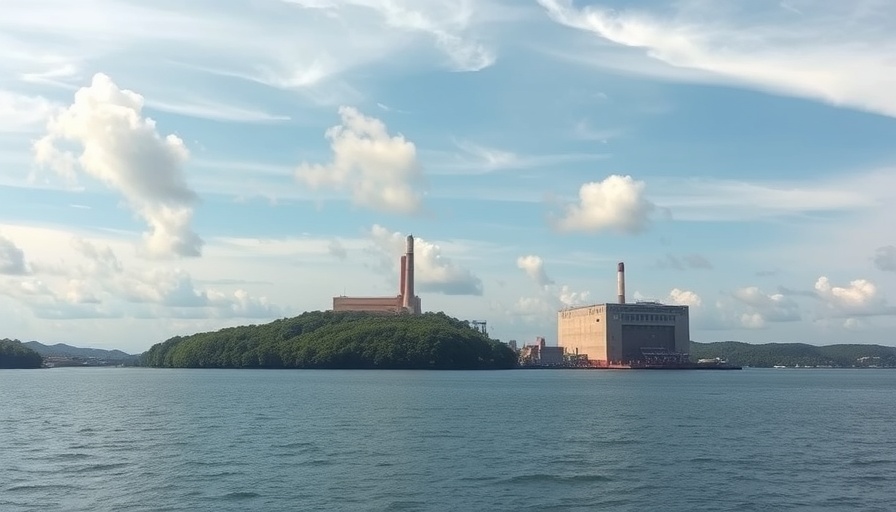
Mounting Frustration Over Cooling Center Crisis in Gastonia
The rising temperatures in Gastonia have brought a wave of concern, especially for the homeless population who rely heavily on community support during extreme weather conditions. As officials grapple with the logistics of a proper cooling station, the community's frustration has only intensified. Mayor Richard Franks's admission of the inadequacies of the temporary outdoor setup starkly illustrates the urgent need for effective solutions at a time when safety should take precedence over political debates.
A Community United in Outrage
Days of heat wave conditions, with temperatures soaring into the 90s and heat indices reaching triple digits, have elicited strong reactions from the local community. The situation came to a head at an emergency city council meeting recently, where a glaring lack of attendance by council members prevented any official resolutions from being made. “How many days do we allow people to suffer? How many days do we allow people to be in harm's way? Because of politics,” voiced Councillor Cheryl Littlejohn, reflecting the frustration many residents share.
Why Proper Cooling Centers Matter
Access to safe cooling centers is critical for all communities, especially vulnerable populations such as those experiencing homelessness, seniors, and individuals with chronic illnesses. Prolonged exposure to extreme heat can lead to severe health complications, including heat exhaustion and heat stroke. As temperatures continue to rise in urban areas, especially across the Carolinas, establishing reliable cooling resources should be a top priority for local governments. Research indicates that during heat waves, the risk of mortality significantly increases, particularly among those without proper shelter or cooling facilities.
Previous Efforts and Recognizing Inadequacies
The decision to open a temporary outdoor cooling station was met with immediate backlash. Community members argued that the outdoor setup was inadequate for the public health crisis at hand. While some provisions were made to create a shaded area, community advocates highlighted important aspects that were lost in the planning process, such as proximity to basic health amenities, cooling access around-the-clock, and the need for a welcoming environment that encourages vulnerable individuals to seek refuge from the extreme heat.
Political Obstacles and Community Action
The failure to achieve a quorum during the city council meeting raises critical questions about political responsiveness to public health crises. Local advocacy groups are calling for accountability and encouraging citizens to engage in the decision-making process. By sharing personal stories and rallying public support, these advocates aim to pressure local officials into taking effective action swiftly. The risks of political inaction, especially regarding essential health resources, have become a rallying point for citizens who are tired of observing delays when lives are at stake.
Equipping Communities for Extreme Weather: A Call for Action
This situation serves as a wake-up call for other cities in North Carolina and across the nation. As heat waves become more common, urban centers must prioritize the needs of their most vulnerable populations. Expanding access to comprehensive heat relief services, including not just cooling centers but also medical support, education on heat safety, and resources for mental health impacts, is crucial as we adapt to a changing climate.
Conclusion: What Can Be Done
With temperatures escalating and the compassion fatigue of local leaders evident, it is essential for citizens to advocate for better public health infrastructure. Voices like those of Mayor Franks and Councillor Littlejohn need support from the community to ensure these cooling stations are not merely temporary fixes but part of a robust health initiative. The fight for effective cooling centers in Gastonia illustrates a larger battle for social equity and public welfare that needs ongoing attention.
As temperatures rise, now is the time to engage with your local council members and demand comprehensive solutions that prioritize community health and safety. Your voice matters—let's create change together!
 Add Row
Add Row  Add
Add 




Write A Comment